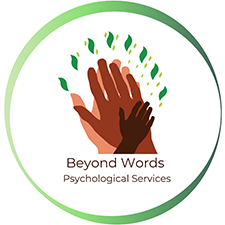Why “I’m Ready to Listen” is Not the Beginning of Your Allyship
It’s inevitable. Every time there is a major headline involving the murder of an unarmed Black person at the hands of a law enforcement officer, I see the same pattern playing out with several family members, friends, or acquaintances. I’ll make a statement (in person or on social media) about the importance of understanding a particular aspect of racism, and I’ll receive pushback about the validity of my statement – some form of silencing, tone policing, or gaslighting that implies I’m handling the situation inappropriately, and they know how to handle it better.
And, inevitably, all of the statements below about said “pushbackers” are true:
They are white or white-passing.
They have rarely or never acknowledged my social media posts on the topics of Black Lives Matter, police brutality, racial awareness, or anti-racism.
They have rarely or never posted anything about Black Lives Matter, police brutality, racial awareness, or anti-racism on their social media pages.
They have never brought up these topics with me in person.
They have never checked in with me to find out how I’m doing or how I’m navigating the fear I feel for by Black son.
They have never asked about my work with transracial adoptees of color.
They have never viewed my professional blogs, social media posts, videos, webinars, or podcasts on the topic of race.
Yet . . . they tell me how I should approach the topic differently. They tell me what I’m saying is untrue. They tell me how I should react. They tell me how I should feel.
Then, as the pattern always goes, they want to “have a conversation.” They assume that by us scheduling a time to talk about the topic in person, over the phone, or by video, we’ll come to some sort of agreement about how I should explain things in a nicer way so that people will actually want to learn.
Here’s the thing, though. I constantly learn about these topics from experts of color. I constantly talk about these topics with my friends of color. I constantly educate white adoptive parents and adoptees of color on these topics as a significant part of my professional work (you may be surprised to learn, that I’m considered a “Transracial Adoption Expert” by many in the field!). I have four decades of lived experience as a person of color.
So when I end up having “that conversation,” it always begins the same way – they apologize for the fact that I am hurt. Now, read that exactly as it’s written – they do not apologize for the fact that they were the cause of my hurt or acknowledge responsibility for how their words or actions contributed to my hurt – they simply tell me they are sorry that I am hurting, without any accountability on their part. Somewhere in the conversation, they’ll share about how they’ve been victimized – whether by their own experiences of oppression, individual life challenges, or by my words. Then they’ll explain to me that the only way we can create lasting change is to be open with one another, to share our lived experiences and struggles, and to get to know one another better in order to begin facilitating the “hard discussions.” Inevitably, they’ll tell me: “I’m ready to listen.”
And this is where the conversation ends for me. Just because you’re ready to listen does not mean I should jump at the chance to recount all of the things I have been sharing for nearly a decade, depleting myself through emotional labor at your convenience. This statement is the epitome of oppression and performative allyship – it makes the “sayer” feel good about being ready to learn and create change, giving themselves a pat on the back for their supposed growth, but it assumes that the recipient is at their beck-and-call, that their time and energy is not valuable, and that they should feel grateful for the being given the opportunity to voice to their experiences or expertise in a forum that is finally ready to learn.
If you weren’t ready to listen before, that is your problem to resolve, not mine. The resources to learn – from numerous experts of color, including all of the ones I have been sharing for years, personally and professionally – are still available for you to access and learn from, when you’re ready to do the work instead of asking me to do it for you. If you’re ready to listen and learn, don’t tell me – take action and show me.
I realize this blog post describes my personal experiences, but I guarantee you that it is a universal experience and will resonate with nearly every non-white-passing BIPOC you meet. I also realize there will be dozens of people who assume this post is specifically about my interaction with them – and while it is about each single interaction, it is more about the fact that this interaction is a pattern, and they are each one among many. My exhaustion is at the point where I am no longer concerned with how my bluntness may hurt those who have hurt me. I’m more than willing to share the discomfort and distress at this point in my life. Hopefully, if you’re truly “ready to listen,” you’ll turn that discomfort and distress into doing the work to genuinely become an ally.
